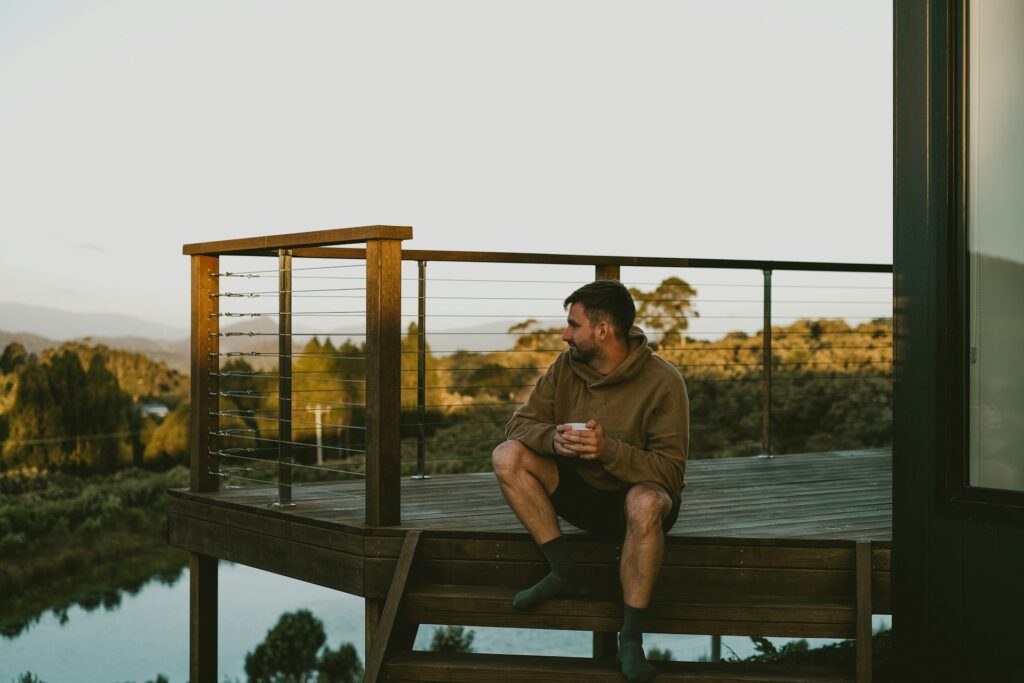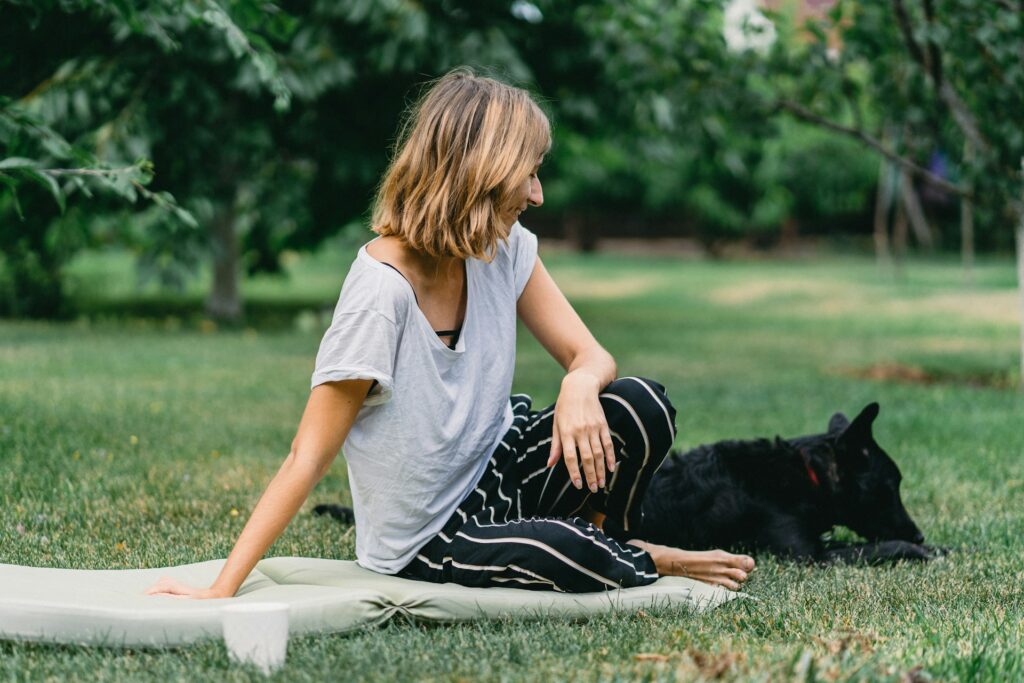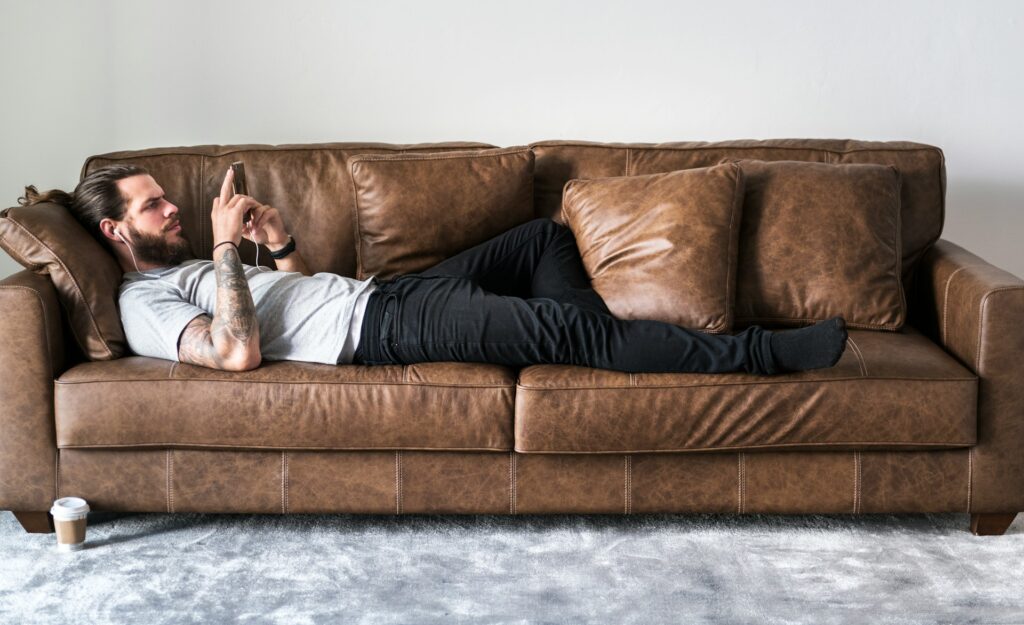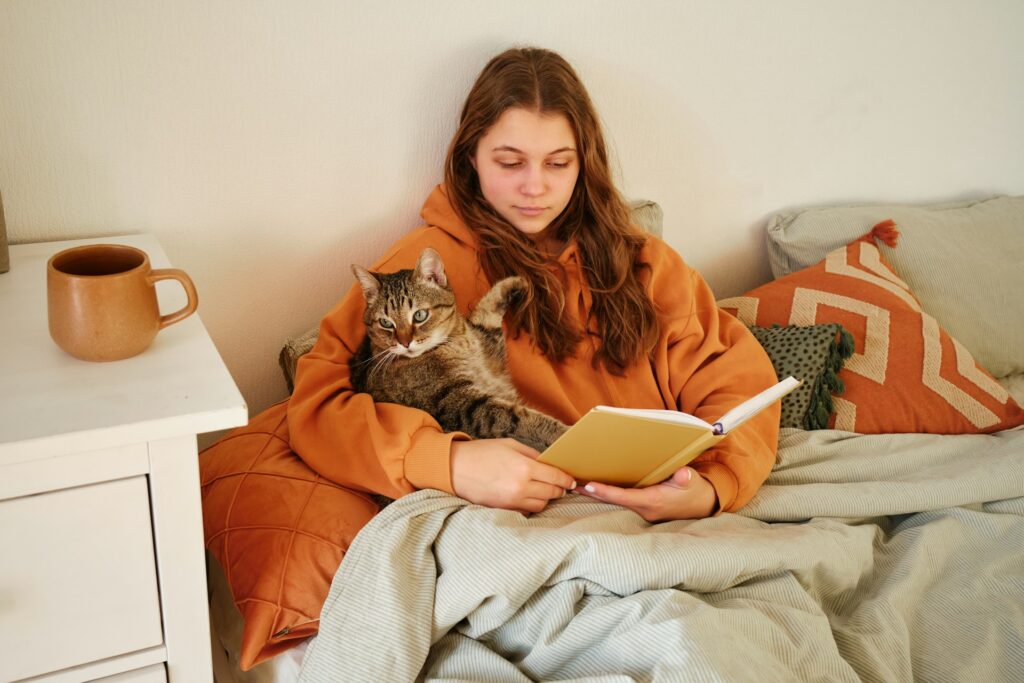Anxiety isn’t always loud and intense.

In fact, a lot of the time, it’s just a low-level buzz in the background—a quiet hum that makes simple things harder than they should be. It turns everyday decisions into impossible ones, takes joy out of things you usually love, and makes your brain feel like it’s always running a few tabs too many. And while there’s no magic fix, there are small, practical things that can help ease that tension. They won’t eliminate the anxiety entirely, but they might make it easier to live alongside it.
The best part is that these little practices aren’t overwhelming. They’re also not expensive, and they don’t require a full routine overhaul or some perfect version of yourself. They’re just small things people with anxiety have figured out to help them get through the day with a bit more steadiness.
Having a “default outfit” for stressful days

On anxious days, decision-making can feel like a minefield. Choosing an outfit might not seem like a big deal, but for someone with anxiety, it can be enough to derail the morning. Having a go-to outfit—something soft, familiar, and easy—can take one pressure point off the day. It’s about comfort and familiarity, not fashion. Some people even keep a few “uniform” options ready so they can avoid that decision fatigue altogether.
Keeping your phone on “Do Not Disturb” more often than not

Endless notifications and message pings can create a background hum of stress that builds without you noticing. Setting your phone to Do Not Disturb, even for just a couple of hours a day, can reduce that noise. It’s a way of saying, “I don’t have to be available to everyone all the time.” And the more you practise it, the more you realise most things can wait.
Having one tidy corner, even if the rest of the place is a mess

You don’t need to Marie Kondo your entire flat. But when everything feels chaotic, having just one clean, calm corner can be grounding. Maybe it’s a tidy bedside table, or your kitchen bench cleared off. A single space that feels under control can help your brain feel a bit less overwhelmed by the mess elsewhere. It’s a pocket of peace you can come back to when everything else feels too much.
Breaking everything into ridiculously small steps

The phrase “just get it done” doesn’t help when anxiety is involved. What does help? Micro-steps. Instead of telling yourself to clean the kitchen, you just clear one plate. Instead of replying to all your emails, you open one. Tiny steps reduce the mental barrier and make tasks feel manageable. The bonus is that once you start, you often keep going, but the pressure to do so isn’t there.
Using the “two-minute rule” to beat paralysis

If something takes less than two minutes, just do it. Send the reply, wipe the counter, pay the bill. This isn’t about productivity; it’s about avoiding the anxiety that comes from letting small things pile up. Ticking off a few two-minute tasks can clear mental clutter, reduce guilt, and make space for your brain to focus on what actually matters.
Playing the same playlist every morning

Routines can be calming, and music has a powerful effect on mood. Starting your day with the same playlist each morning creates a sense of stability. Your brain starts to associate those songs with waking up, getting dressed, having breakfast. It becomes a signal to your nervous system: the day has started, and you’re safe. Some people even build full morning rituals around this kind of audio cue.
Keeping a notepad by the bed for 3 a.m. spirals

Anxious thoughts love the dark. You’re tired, vulnerable, and your brain decides it’s the perfect time to overanalyse a text or replay that awkward thing you said in 2017. Keeping a notepad nearby gives you a place to offload those thoughts. Writing things down tells your brain, “You don’t have to hold onto this right now.” It doesn’t need to make sense. It just needs to get out.
Talking out loud to yourself when no one’s around

It might feel odd at first, but saying things out loud like “I can handle this” or “This will pass” engages a different part of your brain than silent thinking. It gives structure to the mess in your head. Self-talk can ground you in the moment and interrupt the spiral. You can even pre-plan certain phrases or reminders that help pull you back when things get overwhelming.
Scheduling “nothing time” in your calendar

When you see an empty space on your calendar, it’s tempting to fill it with “shoulds.” But deliberately blocking out time to do nothing—yes, actually labelling it in your diary—can be one of the most anxiety-reducing things you do. It legitimises rest. It makes space for decompression without guilt. And it gives your brain a break from trying to keep up with everything and everyone.
Putting comforting things in reach of your bed

It’s not about aesthetics; it’s about safety. When anxiety flares up at night, having sensory items within reach can bring you back to your body. Think: a cosy blanket, a familiar-smelling lotion, a smooth stone, or a book you’ve already read five times. These objects don’t fix anxiety, but they offer a thread of comfort that helps pull you through it.
Practising “one-sense grounding”

Mindfulness can feel overwhelming when your brain is already overrun. One-sense grounding is simpler. Pick one sense and focus on it for 30 seconds. Feel the weight of your hands. Listen for five sounds. Smell something you love. This tiny pause breaks the loop of anxious thinking and brings you back into your body—without requiring a full meditation session.
Saving kind messages in a folder for hard days

Anxiety loves to rewrite the story of who you are, usually in the worst possible light. Having a “kind words” folder, full of messages from people who care about you, can act as a counterweight. Reading those notes reminds you that people see things in you that anxiety tries to hide. You don’t have to believe your anxious brain all the time.
Preparing “bare minimum days” in advance

Some days just aren’t going to go to plan. And that’s okay. Having a list of non-negotiables for low-capacity days—a quick breakfast, a comfy outfit, one must-do task—can take the guesswork out of getting through them. It’s like giving your future self a gentle hand on the shoulder that says, “Here’s what matters today. The rest can wait.”
Learning what your early warning signs are

Anxiety doesn’t usually come out of nowhere. There are clues. You might start checking your phone obsessively. You might zone out in conversations. You might find yourself getting short with people for no reason. The more familiar you get with your warning signs, the earlier you can step in. That might mean rescheduling a plan, taking a walk, or doing something grounding. Catching it early doesn’t stop the anxiety, but it can stop it from snowballing.


